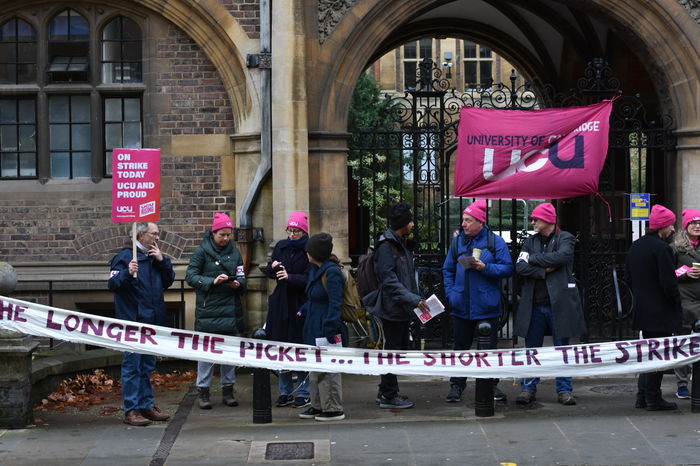Supervision boycott cancelled
A pay rise has been accepted by the group campaigning for supervisors’ pay and conditions

Supervisions will now go ahead as normal this term, after college tutors called off a planned boycott of the University’s notorious one-on-one teaching system last night (03/10).
The unprecedented boycott of undergraduate supervisions, which are largely taught by staff on contracts that the University and College Union (UCU) have likened to the gig economy, was predicted to affect “thousands of undergraduates” this Michaelmas term.
The Justice for College Supervisors campaign (J4CS) has been pressuring the university for several years, demanding both pay increases and formalised contracts for staff, many of whom are self-employed, freelancers, or PhD students.
Yesterday, after months of negotiations, supervisors called off the action after receiving an offer of an eight to nine percent pay rise. The new offer is a three to four percent improvement on the increase previously on the table.
In the past, the effects of industrial action at Cambridge have been minimised by the collegiate tutorial system. Strikes have mostly been limited to university-wide teaching, with lectures affected far more than the in-depth one-on-one supervisions.
The now-cancelled supervision boycott would have been the first time Cambridge students would face no teaching at all in a wage dispute.
J4CS previously told Varsity the boycott would have “proven how reliant the supervision system is on the labour of exploited, precarious workers.”
Pro-vice chancellors Pippa Rogerson and Bhaskar Vira said: “Following constructive conversations between the campaign and the Colleges we are pleased to announce that an agreement on increases to intercollegiate recharge rates for undergraduate supervisions has been reached and the Boycott of Undergraduate Supervisions (BUS) has been suspended.”
Cambridge UCU told members yesterday: “This is just the beginning for the campaign. We must continue to apply pressure over the next term, and look to build an even bigger boycott if the discussions break down.”
Representatives from both sides of the dispute are set to meet tomorrow to produce a joint statement and put in place a new “programme of work” to resolve tensions.
 News / News in Brief: Postgrad accom, prestigious prizes, and public support for policies11 January 2026
News / News in Brief: Postgrad accom, prestigious prizes, and public support for policies11 January 2026 Comment / Will the town and gown divide ever truly be resolved?12 January 2026
Comment / Will the town and gown divide ever truly be resolved?12 January 2026 Comment / Plastic pubs: the problem with Cambridge alehouses 5 January 2026
Comment / Plastic pubs: the problem with Cambridge alehouses 5 January 2026 Lifestyle / The only party girl in the East Midlands12 January 2026
Lifestyle / The only party girl in the East Midlands12 January 2026 News / 20 vet organisations sign letter backing Cam vet course13 January 2026
News / 20 vet organisations sign letter backing Cam vet course13 January 2026










